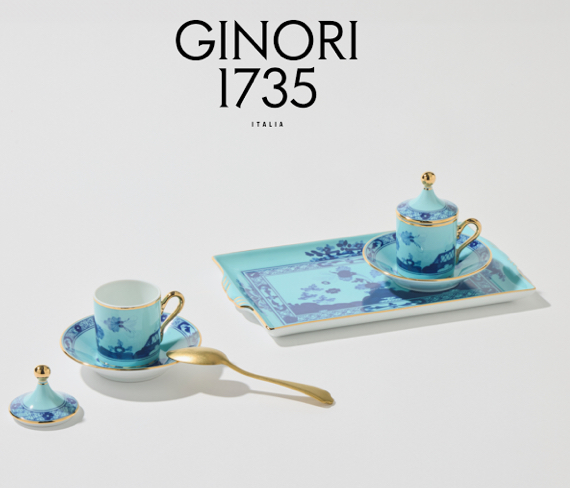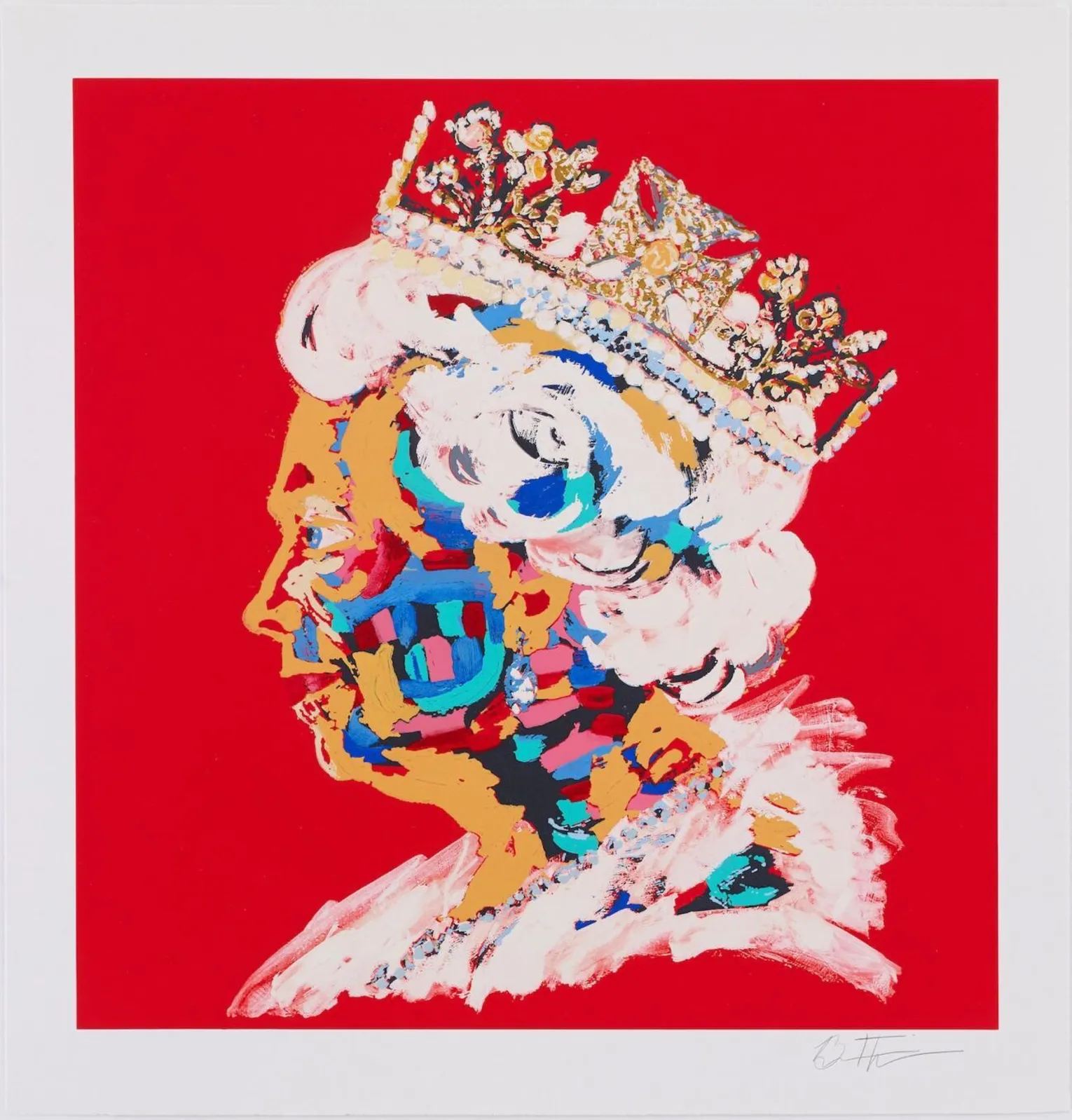For nearly three centuries, Ginori 1735 has stood as a beacon of fine porcelain craftsmanship, blending Italian artistry with the meticulous skill required to create pieces of enduring beauty. With origins in Florence, Italy, Ginori has evolved from a single porcelain factory into a global luxury brand synonymous with elegance, innovation, and cultural reverence. This article delves into the brand’s storied history, its commitment to craftsmanship, and the way it continues to shape contemporary design.
Founded in 1735 by the Marquis Carlo Ginori, the Ginori porcelain factory emerged as one of Europe’s earliest producers of porcelain. At a time when porcelain was considered a luxury imported from the Far East, Carlo Ginori recognized its potential as a medium that could transform Italian decorative arts. By merging Italian artistry with porcelain’s unique qualities, he crafted pieces that captured the grandeur of Florentine art while embodying an innovation that set Ginori apart from other European manufacturers.
Over the years, Ginori’s porcelain became an emblem of Italian luxury. By the 19th century, the factory had achieved widespread acclaim, securing prestigious commissions for the Italian nobility. Ginori’s artisans and designers pushed creative boundaries, influenced by Italy’s rich art heritage. The influence of Renaissance art is evident in Ginori’s intricate detailing, sculptural forms, and historical motifs—a visual language that remains integral to Ginori’s identity even in its contemporary collections.
The Ginori 1735 name is associated with a tradition of craftsmanship that emphasizes precision and attention to detail. Each piece undergoes a labor-intensive process, often involving multiple artisans at various stages. The brand’s mastery lies in its ability to retain the charm and individuality of hand-made objects while adhering to an exacting standard of quality. Ginori artisans are trained in age-old techniques that require years to perfect, such as intricate hand-painting, gilding, and glazing.
Porcelain, a delicate yet durable material, requires a deep understanding of firing temperatures, pigment chemistry, and mold casting. Ginori’s craftsmen harness this expertise to achieve the rich colors, polished finishes, and unique translucency that characterize their porcelain. Each collection undergoes multiple stages of refinement, from initial sketching to final glazing, to ensure that each piece bears the Ginori hallmark of quality. This rigorous commitment to craftsmanship is evident in iconic collections such as “Oriente Italiano” and “Il Viaggio di Nettuno”, where artistry and skill converge to create visually stunning works.
What sets Ginori apart in the world of luxury porcelain is its ability to evolve with changing tastes while remaining true to its roots. Over the centuries, the brand has collaborated with some of the most celebrated artists, designers, and fashion houses, each of whom has contributed to its artistic lexicon. In recent years, Ginori has partnered with artists such as Luke Edward Hall and fashion houses like Gucci, broadening its appeal while exploring new stylistic directions.
Ginori’s influence extends beyond its role as a luxury brand; it is a cultural artifact that mirrors Italy’s artistic heritage. Through its collections, Ginori captures the essence of Italian culture, history, and aesthetics. This connection to Italian identity is especially visible in Ginori’s choice of motifs, which often draw from Renaissance art, Florentine architecture, and classical mythology. The brand’s collections serve as both decorative art and a reflection of Italian cultural values, presenting themes of beauty, refinement, and a profound respect for history.
The brand’s pieces are often described as “usable art”—objects that bring a sense of cultural sophistication to everyday life. Each collection, from tableware to decorative accents, reflects a timeless elegance that connects the user to Italy’s artistic lineage. This cultural significance elevates Ginori 1735 from mere luxury to an experience that celebrates Italian heritage through the medium of porcelain.
As a centuries-old brand, Ginori 1735 faces the challenge of remaining relevant in a modern market that increasingly values sustainability and environmental responsibility. Porcelain production is resource-intensive, involving high-temperature kilns and the use of minerals that require careful sourcing. To address these challenges, Ginori has implemented eco-friendly initiatives aimed at reducing waste and minimizing its environmental impact. This includes innovations in kiln technology, recycling raw materials, and using water responsibly.
Ginori’s commitment to sustainability aligns with a broader industry shift toward environmental consciousness, ensuring that the brand appeals to modern consumers who prioritize eco-responsibility. By balancing its historical methods with sustainable practices, Ginori not only preserves its heritage but also contributes to a future in which luxury and environmental care coexist.
In a luxury market dominated by rapid trends, Ginori 1735 distinguishes itself through its steadfast commitment to quality and timeless design. Unlike brands that rely on seasonal releases, Ginori’s collections are created to endure, both aesthetically and materially. This focus on enduring value appeals to collectors, interior designers, and consumers who appreciate the lasting beauty of handcrafted luxury.
Ginori’s market strategy also reflects a deep understanding of the global consumer. With its partnerships with brands like Gucci, the company taps into the appeal of Italian luxury in the fashion world, broadening its reach and introducing its heritage to new audiences. This synergy between fashion and interior design is evident in the brand’s retail spaces, which combine a modern aesthetic with elements that evoke its Italian roots, offering consumers an immersive experience of Ginori’s artistry.
Ginori 1735’s relevance today is not merely a product of its long history but its ability to adapt without sacrificing its core values. By embracing collaborations, championing sustainability, and upholding an unwavering commitment to craftsmanship, Ginori has created a legacy that continues to resonate with a contemporary audience. Its pieces are not only functional but also serve as heirlooms, carrying stories of Italian craftsmanship across generations.
The appeal of Ginori’s designs lies in their ability to evoke a sense of beauty and refinement that transcends fleeting trends. In a world that often favors mass production, Ginori’s dedication to traditional techniques and handmade quality is a reminder of the value of artistry and cultural heritage.
No comments yet.








